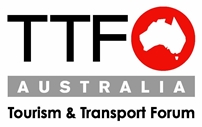TTF Media Release
7/2/2024
TOURISM NEEDS GOVERNMENT SUPPROT FOR ‘GREEN FUEL’ TO FLY HIGH
The tourism industry is calling for the upcoming federal budget to invest in developing a local Sustainable Aviation Fuel (SAF) or ‘green fuel’ industry, to ensure the full recovery and long-term future of the tourism and aviation sectors.
Tourism & Transport Forum (TTF) Australia CEO Margy Osmond said today in Canberra, that countries all over the world are committing to and investing in SAF.
“Australia cannot afford to be left behind. We are a long-haul destination and increasingly consumers are demanding more sustainable options when they travel,” Ms Osmond said.
A new TTF survey of 1000 Australians, conducted by Pure Profile earlier this week, reveals 82% of Australians believe it’s important for Australia to find ways to reduce carbon emissions produced by air travel.
Ms Osmond said the tourism and aviation sectors would like to see a significant funding commitment in the federal budget, to help develop a local SAF industry, to safeguard a future for the tourism sector and meet the growing traveller demand for greener options.
“Analysis by L.E.K. for TTF shows SAF is aviation’s key lever to decarbonise in an effort to reach net zero by 2050,” Ms Osmond said.
“Producing our own SAF would also create up to 15,600 jobs by 2050 and contribute more than $7 billion a year to the economy.”
Ms Osmond warned Australia risks lagging other developed countries on both policy and direct investment to support SAF, including the USA, Europe, UK, Singapore, Japan and Canada.
“The UK plans to build at least five commercial SAF plants by 2025. So far, Australia has none, although three are currently under discussion. While popular holiday spots like Japan and the UK will also require arriving flights to be using a fuel mixture with at least 10% SAF by 2030 or penalties could apply,” she said.
“We applaud the Federal Government for making real progress and giving focus to this issue, through the establishment of the Jet Zero Council and by collaborating with industry. However, we need to keep prioritising this and address the concerns of Australian travellers who want a greener future for aviation.”
The survey also found 86% of Australians would support the development of a local SAF industry, to create jobs, lower emissions and possibly prevent overseas travel from becoming more expensive.
“Given Australians love to travel, it’s encouraging to see the overwhelming majority support action to reduce emissions from flying. But we need to raise more awareness that SAF is critical to reaching our net zero goals and the time to act is now,” Ms Osmond said.
ENDS
